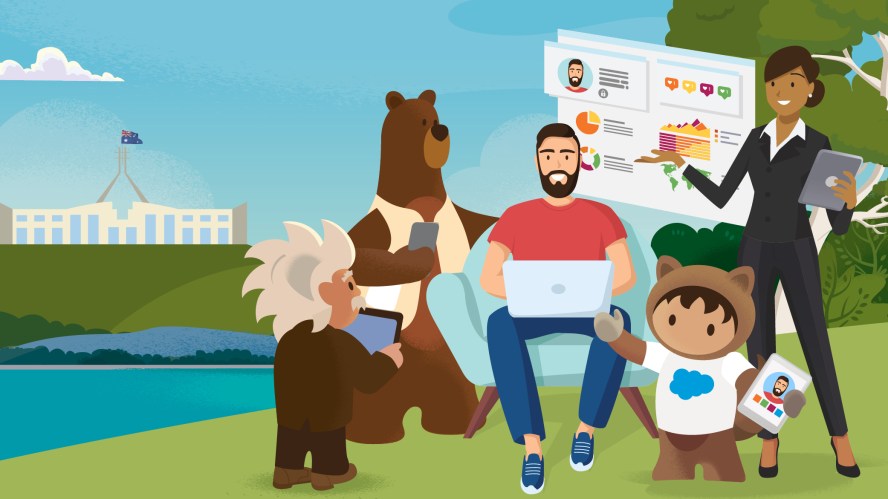In research that builds on last year’s Trust Imperative report, we found that three out of four people expect personalised government services. But they also want a clearer understanding of the benefits and reassurance that their data is safe.
Last year, we surveyed Australians and New Zealanders to understand what really moves the dial on the level of trust people have in governments. The research revealed a strong correlation between the quality of government service delivery and the level of trust people have in their governments. That correlation remains strong in 2020 with a massive 90% of customers saying the quality of their service experience influences their trust in government, 5% higher than in 2020.
The question is now what can governments do to maintain this trust? The answer lies in the permission the public has granted governments to personalise services.
Boston Consulting Group’s Miguel Carrasco and I sat down for a conversation during Salesforce Live: Australia & New Zealand, to talk about what this means for government agencies and how they can perpetuate the cycle of trust, both today and beyond the pandemic.
The good news: service usage and satisfaction have increased, positively impacting trust
- 40% of customers felt quality of digital government services had improved over the last 12 months
- 52% of Australian customers and 59% of New Zealand customers said their levels of trust and confidence in government had increased based on their digital experience
- There was marked growth in the number of people accessing services at least once per week since 2018
With the pandemic driving many people online and forcing greater reliance on government services, Miguel says there was an unsurprising increase in the number of people accessing government services online. “The good news is, actually, many of them are having a better experience.”
And, as we’ve seen, the more trust customers have that governments are going to deliver a tangible benefit for them, the more likely they are to give government access to data. What does that mean in terms of the level of service delivery customers expect?
The work ahead: customers expect personalisation and proactivity, but concerns linger
- Three-quarters of customers say they expect the digital service they receive from government to meet the high standards set by banks, telcos and e-commerce businesses.
- 76% of customers expect governments to tailor services to them and 87% want proactivity in the way government engages them, with 70% saying they’re willing to share personal data to achieve this
- Concerns have lessened since 2019, but nearly half are still concerned about their data being used for purposes they haven’t consented to, while 46% are concerned about security and storage of their data
The data shows that customers have given government permission to personalise. The character of that personalisation is different to what we would expect from an online retailer. Instead, approximately 38% of people are looking for governments to be proactive about the services that might be relevant to them and tailor that outreach based on what they knows about people like them. Another 25% of people want government services tailored to them based on what government knows about them specifically.
Our research found 13% of people in Australia and 12% of New Zealanders didn’t want any kind of proactive government. As Miguel noted, “People are still anxious about how their data is used and whether it’s being stored securely.”
Next steps: communicating benefits, unlocking empathetic personalisation and leading with transparency
Governments are improving their communication of the personal and community benefits of sharing data. In fact, our data showed an increase of 16 percentage points from 2020. We saw clear examples of this over the course of 2020 when governments would encourage the downloading of government apps by connecting that action with a direct benefit – for example, the promise of a shorter lockdown and greater freedom of movement. Those apps also took a step forward in clarifying how that data would be used and how long the government would store that data.
However, people who approve are still less than half those surveyed at 43%, highlighting the need for more to be done by governments in communicating the value exchange.
The research highlights the interdependent nature of government’s ability to digitise, innovate and build greater customer trust. But that interdependency points to an urgent imperative – gains in trust can be lost, and Australians and New Zealanders will want to see proof that their trust can be maintained. Capturing this momentum and building trust will require greater agility and smarter digital priorities than ever before.
So what is your agency doing today to deepen trust and build a better future?
Download Trust Imperative 2 for full insights and recommendations.























